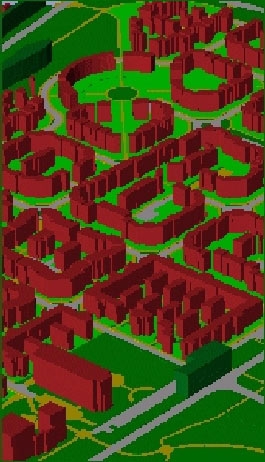
One of the challenges is to objectively record the cognitive and behavioural processes when individuals use mobile technologies for wayfinding in urban settings. Therefore, in this research, an empirical approach has been proposed and implemented, which combines immersive virtual environments, mobile devices and multi-source data collection methods to capture data in real-time on information transaction and individual behaviour in a dynamic environment. This has provided a rich data source detailing individual space-time behaviour for pedestrian wayfinding tasks.
The research seeks to identify and model the aggregate characteristics of wayfinding strategies, preferences for and intensity of use of different types of spatial information that differentiate particular user groups.
Also it is possible to confirm certain effects of urban layout on behaviour and has highlighted key spatial loci for information demand and decision making. This research is part of an expanding and important research agenda seeking to reinvigorate interest in urban cognition and wayfinding and understand the new mediating role of mobile technologies.
People
- Chao Li
 Close
Close

